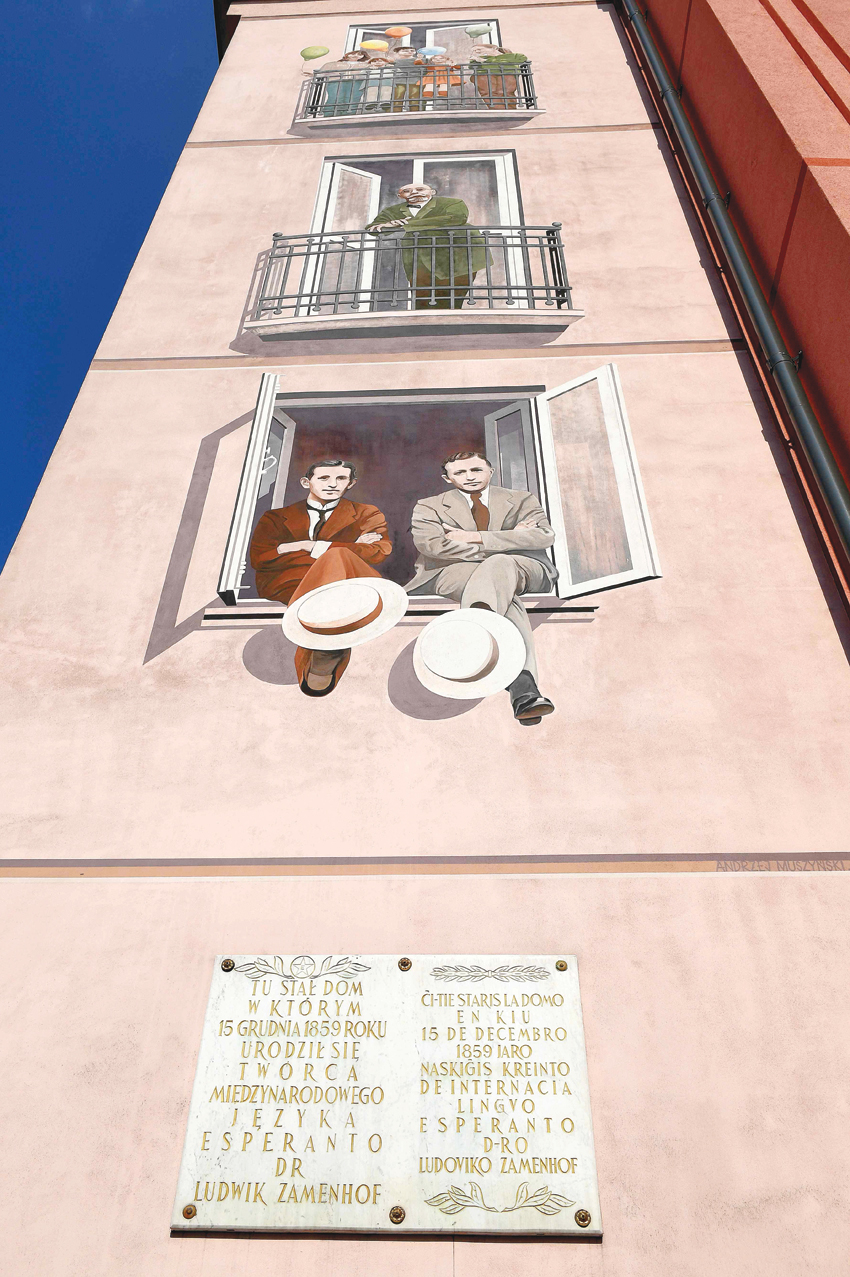





Bernard Osser -
Instead of a hello, the head of the Esperanto association in the Polish city of Bialystok opts for “saluton”, a sign that the universal language created by Ludwik Zamenhof is alive and well a century after the Jewish doctor’s death.
“Zamenhof created Esperanto as a counterweight to national languages, which he believed divided people and were a source of conflict,” says association president Przemyslaw Wierzbowski.
“Today, we know that it’s economic, ethnic or religious differences that divide people, but Esperanto still has the goal of uniting us, helping us communicate,” the 30-year-old added.
Wierzbowski spoke from a table at Esperanto Cafe, which is located in a tower within the eastern city’s market square, just steps away from where Zamenhof was born in 1859.
During the 19th century, the tower was at the heart of a market packed with stalls manned by German, Jewish, Lithuanian and Polish merchants. Bialystok belonged to the Russian empire at the time and was the scene of ethnic tensions.
This local Tower of Babel is said to have inspired Zamenhof to construct his universal language to promote exchanges between people and bring peace to the world.
Zamenhof left Bialystok to study medicine in Moscow and Warsaw. Then, in 1887, he published his first book on the international language under the pseudonym Doktoro Esperanto (the one who hopes).
By 1905, there were more than 300 Esperanto associations around the world. That same year, nearly 700 people from about 20 countries attended the first Esperanto world congress, in the northern French city of Boulogne-Sur-Mer.
This year the 102nd congress will take place in Seoul at a time when more than one million people speak the language and Esperanto is even an option on Google Translate.
The Japanese Shinto-based religion Oomoto considers Zamenhof to be a god and propagates Esperanto as a “language of heaven” that will help build a conflict-free world.
Known for his idealism, Zamenhof was nominated for the Nobel Peace Prize 13 times before his death on April 14, 1917.
Among the 3,200 books in the Esperanto library in Bialystok, there are classics like J R R Tolkien’s The Lord of the Rings (La Mastro de l’Ringoj).
Tolkien actually took an interest in Esperanto and once wrote that the artificial language was “necessary for uniting Europe”.
He was also among the signatories of a 1932 Esperanto document that said: “We heartily associate ourselves with the efforts that are being made to introduce Esperanto as a regular subject of instruction, and to encourage its use in the schools of the world.”
Retired lawyer Elzbieta Karczewska, who volunteers at the Esperanto library in Bialystok, says she recently went to Nepal to meet with other Esperanto speakers.
“I always dreamt of travelling around the world, and I did it through Esperanto. Rare are the countries that I have yet to see,” she said.
Wierzbowski says he met people from countries like Iran, Senegal and South Africa at his first Esperanto congress.
“I understood that there was more we had in common than what separated us and that the differences were less important,” he said.
The artificial language is exceptionally easy to learn. It has 16 basic rules, no exceptions and only 1,000 root words.
Some 75 per cent of the vocabulary comes from Latin and Romance languages and around 20 per cent from Germanic tongues. The remainder is drawn from Slavic languages, while most of its scientific terms come from Greek.
Every year a few dozen people sign up for Esperanto lessons in Bialystok.
“Cu vi havas cevalon,” said one student recently, using the phrase for “do you have a horse”, as the class played a card game to learn word construction.
“At first, you have to build up a word bank. After, with just one word we can create 10 new ones by adding prefixes and suffixes,” said Esperanto teacher Iwona Zalewska.
“I learnt Esperanto in a month-and-a-half, two months max,” said 22-year-old French student Amelie Chartier, who came to Bialystok to work at the Esperanto association through a European volunteer programme.
“It’s a language that also helps you learn other languages.” — AFP
Oman Observer is now on the WhatsApp channel. Click here



